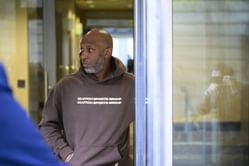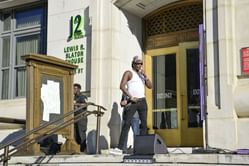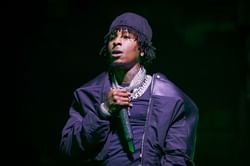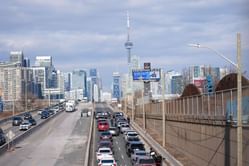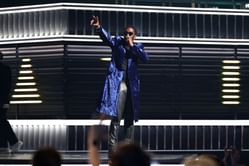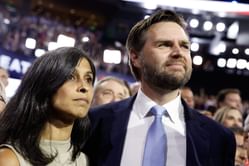
Woodstock '99 is remembered for the controversies and horrors that attendees saw; the festival was tainted by deaths, rapes, vandalism, violence, and other incidents.
The Woodstock Music and Art Fair, 1999, also known as Woodstock 1999, took place in Rome, New York, between July 22 and July 25. After Woodstock '94, it was the second large music festival to attempt to replicate the original Woodstock festival from 1969.
It took place in upstate New York, similar to previous festivals, but this time at the former Griffiss Air Force Base, about 100 miles from the original Woodstock location. Over the course of four days, there were about 220,000 attendees.
The festival was extensively covered by the cable network MTV, and pay-per-view live coverage was offered. Its radio rights were held by Westwood One. There were DVD and CD releases of excerpts.
The festival was marred by controversy, unfavorable weather, expensive food and water, poor sanitation that caused illnesses, sexual assault and rape, rioting, looting, vandalism, arson, violence, and death. It has been referred to as "notorious," "a flashpoint in a cultural nadir," and "being in another country during a military conflict."
What was the controversy of Woodstock ‘99?
The festival was doomed from the start by oppressive heat - which rose to above 100 °F - and challenging environmental factors. The concert was held on a former airstrip with a lot of concrete and asphalt, which created its own heat island. In addition to raising daytime temperatures, this effect also kept nighttime temperatures high.
The site also lacked a lot of trees for shade. The distance between the East and West stages, 2.3 miles (3.7 km), required festival goers to cross hot concrete surfaces. Some campers had to resort to sleeping on asphalt because there wasn't enough space for everyone to set up their tents on grassy areas.
Once inside, participants were greeted with exorbitant prices. The cost of the onsite vendors' food and water was very high. Instead, festival-goers had to make a long journey or endure crowded transportation on looping buses to Rome's modest shopping districts, where stores had long lines and little inventory. Long lines of people waited to use the free water fountains until some frustrated concertgoers broke pipes to supply water to those in the middle of the line, which resulted in numerous sizable mud pits.

Dexter Holland, The Offspring's lead singer, and Flea, the Red Hot Chili Peppers' bassist, both spoke out in front of the crowd about seeing women in the audience being inappropriately touched. Authorities received reports of at least five rapes, as well as numerous other sexual assaults and harassments. Witnesses claimed that a woman who was crowd surfing was attacked in the mosh pit while Limp Bizkit was performing.
On Saturday night, a truck was stolen and driven into the rave hangar during Fatboy Slim's performance during the post-stage rave. As they were attempting to remove the truck from the hangar area, staff claimed to have witnessed a teenager being sexually assaulted inside the truck. Additionally, a volunteer said they saw gang rapes at the Korn concert.
During the festival, there were reportedly two more fatalities. A 44-year-old man who had been to Woodstock in 1969 "succumbed to the heat" on Friday. After leaving the concert, a 28-year-old woman was struck by a car as she was crossing the street.
Anthony Kiedis, the lead singer of the Red Hot Chili Peppers, returned to the stage for an encore and compared the group to the 1979 movie Apocalypse Now. When the crowd became violent and vandalized, riot control squads were called in to intervene. A number of semi-tractor trailers and ATMs were broken into and destroyed.

Before the band made its final exit from the stage, there were numerous enormous, tall bonfires burning. Around the fires, participants engaged in circle dancing. Some people tore off plywood panels from the ostensibly impenetrable security perimeter fence in search of more fuel. Aside from being turned over and broken into, abandoned vendor booths were also turned over and set on fire. Trailers containing goods and equipment were also forced open and burglarized. Approximately $22,000 was reportedly stolen from ATMs.

Who performed at Woodstock ‘99?
Numerous well-known acts of the time, including DMX, Limp Bizkit, Korn, Red Hot Chili Peppers, Alanis Morissette, Kid Rock, Metallica, and Creed, were well-known or up-and-coming musicians. No groups from the original Woodstock festival performed at Woodstock 1999. The Who's John Entwistle gave a solo performance, and Mickey Hart, the Grateful Dead's drummer, played with his band, Planet Drum.
Due to a "scheduling conflict," Jeff Beck had to postpone his performance. He was supposed to play at the original Woodstock festival, but the Jeff Beck Group, his band, disbanded the week before. Robby Krieger, the guitarist for the Doors, joined Creed unexpectedly during "Roadhouse Blues," even though the Doors declined an invitation to perform at the original Woodstock.

The Foo Fighters were scheduled to perform, but they canceled because guitarist Franz Stahl left the band and they needed to finish work on There Is Nothing Left to Lose. Al Green was also scheduled to show up but canceled after John F. Kennedy Jr. died in a plane accident.
What was the aftermath of the happening of Woodstock ‘99?
According to reports, between 42 and 44 people were detained during the festival. Ten state troopers and two state police supervisors reportedly received demotions or suspensions as a result of their conduct at the festival.
"A supervisor of two state troopers who had posed with naked female attendees was suspended; a New York State prison guard was charged with sodomizing a 15-year-old girl during the riots; 253 people had been treated at area hospitals. The official numbers of fans treated on-site are between 4,000 and 4,500, yet Dr. Richard Kaskiw, one of the few area doctors who worked the medical tents, says that he was told by Vuoculo—who issued the official stats—that the numbers were much higher, in the 8,000 to 10,000 range."

The New York State Department of Health shortly afterward reported 5,162 medical cases connected to the festival. Four rape incidents that took place during the concert were looked into by the police. Some of the trailers were refrigerated and had coolant or propane tanks that exploded, as seen in video footage; a small bus, a few booths, and portable restrooms were also damaged by fire during the brawl.
Following the performance, members of the National Organization for Women (NOW) gathered in front of one of the promoters' New York offices to express their outrage over the sexual assault of women that had taken place. There were several announced lawsuits filed by concertgoers for dehydration and distress against the promoters.
The festival site needed to be cleaned up, which took three weeks. The cost of re-sodding the ground around the stage and mosh pit was estimated at $78,000. Journalist Jane Ganahl of the San Francisco Examiner referred to the occasion as "the day the music died" and questioned whether another high-profile Woodstock concert could be successfully promoted.
FAQs
Q. What is the Woodstock Festival?
A. The Woodstock Music and Art Fair, a popular music festival that took place in August 1969, celebrated its 25th anniversary in 1994 and attempted to be recreated in 1999.
Q. Who were the promoters of Woodstock ‘99?
A. One of the original Woodstock co-founders, Michael Lang, consented to team up with successful New Jersey concert promoter John Scher for a 30-year-old revival of the legendary festival.
Q. Where was Woodstock ‘99 held?
A. Woodstock '99 was held in Rome, a city in Oneida County, New York, USA.


